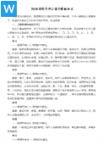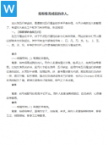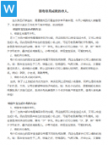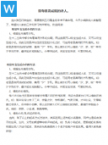






1. I'm sorry for what I said. 2. I apologize for my mistake. 3. I regret what I did and I'm truly sorry. 4. Please forgive me for my behavior. 5. I take full responsibility for my actions and I'm truly sorry. 6. I apologize if I offended you. 7. I'm sorry for any inconvenience or trouble I caused. 8. I regret any hurt or harm I may have caused. 9. I deeply apologize for my actions and I'm truly sorry. 10. I'm very sorry for what I did and I hope you can forgive me. 11. I take full responsibility for my mistake and I'm truly sorry. 12. I apologize for any misunderstandings or miscommunications. 13. I'm sorry if I came across as rude or dismissive. 14. I deeply regret what I did and I'm truly sorry. 15. I apologize for any disrespect or insensitivity I may have shown. 16. I'm sorry for any hurt or pain I may have caused and I'm truly sorry. 17. I take full blame for my actions and I'm truly sorry. 18. I apologize for any inconvenience or difficulty I may have caused. 19. I deeply regret my behavior and I'm truly sorry. 20. I'm sorry for any negative impact my actions may have had and I'm truly sorry.
1. "I'm sorry for what I said." - This statement is an apology for a specific comment made that may have been hurtful or inappropriate. It is often used to repair a relationship or to show regret for an unintentional offense.Example: "I'm sorry for what I said during the meeting. It was inappropriate and I didn't mean to hurt anyone's feelings."2. "I apologize for my mistake." - This statement is an apology for a specific action or decision that has resulted in a negative outcome. It is often used to show a desire to correct the mistake and prevent it from happening again.Example: "I apologize for my mistake in the report. I will double-check my work to prevent any future mistakes."3. "I regret what I did and I'm truly sorry." - This statement is a strong apology that acknowledges the consequences of one's actions and expresses genuine regret. It is often used to repair a damaged relationship or to show a commitment to change.Example: "I regret what I did to hurt you. I deeply apologize and I will do everything in my power to make it right."4. "Please forgive me for my behavior." - This statement is an apology that seeks forgiveness for specific actions or behavior. It is often used to show a desire to make amends and repair a relationship.Example: "Please forgive me for being short with you yesterday. I didn't mean to come across as rude."5. "I take full responsibility for my actions and I'm truly sorry." - This statement is an apology that accepts full responsibility for one's actions and the consequences that followed. It is often used to show a willingness to be accountable and make things right.Example: "I take full responsibility for the mistake that happened in the project. I know it caused inconvenience, and I'm truly sorry."6. "I apologize if I offended you." - This statement is an apology that shows concern for the impact of one's words or actions on others. It is often used to prevent offense or to address concerns before they escalate.Example: "I apologize if my comment today came across as rude. It wasn't my intention."7. "I'm sorry for any inconvenience or trouble I caused." - This statement is an apology for a specific negative outcome that may have been unintentional. It is often used to show regret and a desire to make amends.Example: "I'm sorry for any inconvenience I caused with the delay in the project. I'll work hard to get it back on track."8. "I regret any hurt or harm I may have caused." - This statement is an apology that acknowledges the impact of one's actions on others and expresses regret for any harm caused. It is often used to show a desire to make things right.Example: "I regret any hurt or harm I caused you. Please know that it was never my intention."9. "I deeply apologize for my actions and I'm truly sorry." - This statement is a strong apology that expresses deep regret for one's actions and a commitment to change. It is often used to repair a damaged relationship or to show a desire to make amends.Example: "I deeply apologize for my actions that resulted in the breakup of our friendship. I know I hurt you and I'm truly sorry."10. "I'm very sorry for what I did and I hope you can forgive me." - This statement is an apology that expresses genuine regret for one's actions and a desire to seek forgiveness. It is often used to repair a damaged relationship or to show a commitment to change.Example: "I'm very sorry for what I said about you to our mutual friend. I hope you can forgive me and we can put this behind us."11. "I take full responsibility for my mistake and I'm truly sorry." - This statement is an apology that accepts full responsibility for one's actions and the consequences that followed. It is often used to show a willingness to be accountable and make things right.Example: "I take full responsibility for the mistake that led to the delay in the project. I know it caused inconvenience, and I'm truly sorry."12. "I apologize for any misunderstandings or miscommunications." - This statement is an apology for miscommunications or confusion that may have caused problems. It is often used in a professional or interpersonal context to prevent misunderstandings or conflicts from escalating.Example: "I apologize for any misunderstandings that may have arisen from our meeting. I want to make sure we are on the same page moving forward."13. "I'm sorry if I came across as rude or dismissive." - This statement is an apology for behavior that may have been perceived as rude or dismissive. It is often used in a professional or interpersonal context to repair a relationship or prevent future conflicts.Example: "I'm sorry if my tone came across as rude or dismissive during our meeting. That was not my intention."14. "I deeply regret what I did and I'm truly sorry." - This statement is a strong apology that acknowledges the consequences of one's actions and expresses deep regret. It is often used to repair a damaged relationship or to show a commitment to change.Example: "I deeply regret what I did that led to the breakup of our friendship. I know I hurt you and I'm truly sorry."15. "I apologize for any disrespect or insensitivity I may have shown." - This statement is an apology for behavior that may have been perceived as disrespectful or insensitive. It is often used to repair a relationship or prevent future conflicts.Example: "I apologize for any disrespect or insensitivity I may have shown during our meeting. That was not my intention."16. "I'm sorry for any hurt or pain I may have caused and I'm truly sorry." - This statement is an apology that acknowledges the impact of one's actions on others and expresses regret for any harm caused. It is often used to show a desire to make things right.Example: "I'm sorry for any hurt or pain I may have caused you during our argument. I know that was not my intention and I hope you can forgive me."17. "I take full blame for my actions and I'm truly sorry." - This statement is an apology that accepts full responsibility for one's actions and the consequences that followed. It is often used to show a willingness to be accountable and make things right.Example: "I take full blame for my actions in the project that led to the failure. I know it caused inconvenience and I'm truly sorry."18. "I apologize for any inconvenience or difficulty I may have caused." - This statement is an apology for actions that may have caused problems or difficulty. It is often used to show regret for any inconvenience caused and a desire to make things right.Example: "I apologize for any inconvenience the delay in the project caused. I'm working hard to get it back on track as soon as possible."19. "I deeply regret my behavior and I'm truly sorry." - This statement is a strong apology that acknowledges the consequences of one's actions and expresses deep regret. It is often used to repair a damaged relationship or to show a commitment to change.Example: "I deeply regret my behavior during our argument. I know it hurt you and I'm truly sorry."20. "I'm sorry for any negative impact my actions may have had and I'm truly sorry." - This statement is an apology that acknowledges the consequences of one's actions and expresses regret for any negative impact caused. It is often used to show a desire to make things right.Example: "I'm sorry for any negative impact my actions may have had on you and our relationship. I know that was not my intention and I hope we can move past it.

关于含有比喻的四字词语,这里列举一些常见的例子,这些词语通常运用了隐喻、明喻、借喻等修辞手法来描绘事物,使其更加生动形象: 1. **比喻人生**:把人生比作旅程、道路、画卷等,比如“人生如戏,全靠演技”、“人生百态,各有所长”。 2. *...

冬天,这个充满寒冷与宁静的季节,总能给人留下深刻的印象。以下是一些描绘冬天景色的佳句,希望能帮助您感受到冬季之美: 1. "冬天的天空,像一块被银霜覆盖的蓝宝石,闪闪发光。" —— 张洁《冬天里的故事》 2. "冬日的阳光,带着些许寒意,温...

关于人生哲理的文章,涵盖面非常广泛,它们涉及个人成长、价值观、人际关系、幸福追求、社会问题等多个方面。以下是一些类型的文章主题和大概内容概述,帮助您了解不同类型的哲学思考: 1. **个人成长与自我实现**:这类文章探讨个人如何通过自我反思...

以下是关于三年级仿写拟人句的一些例子。拟人句是一种将非人类事物赋予人类特征或行为的修辞手法。这可以让语言更加生动有趣,帮助孩子们更好地理解和记忆文本。 ### 示例: 1. **阳光轻轻地抚摸着大地,万物在它的温暖中苏醒。** - *...

马克·吐温(Mark Twain)是美国著名的作家和幽默家,他的作品以其深刻的社会洞察和机智的幽默而著称。以下是一些著名的马克·吐温名言: 1. "Get your facts first, then you can distort the...

关于QQ炫舞中的“印象情侣”状态下的暧昧句,通常用于情侣之间增进感情、表达爱意或者互相调侃的情境。这些句子可以是温馨、甜蜜、幽默或者浪漫的,旨在加深彼此的感情。下面是一些可能的句子示例,可以根据情侣间的关系和喜好进行个性化调整: 1. "遇...
Copyright @ 好写作网 All Rights Reserved. 版权所有 粤ICP备2023147452号-1